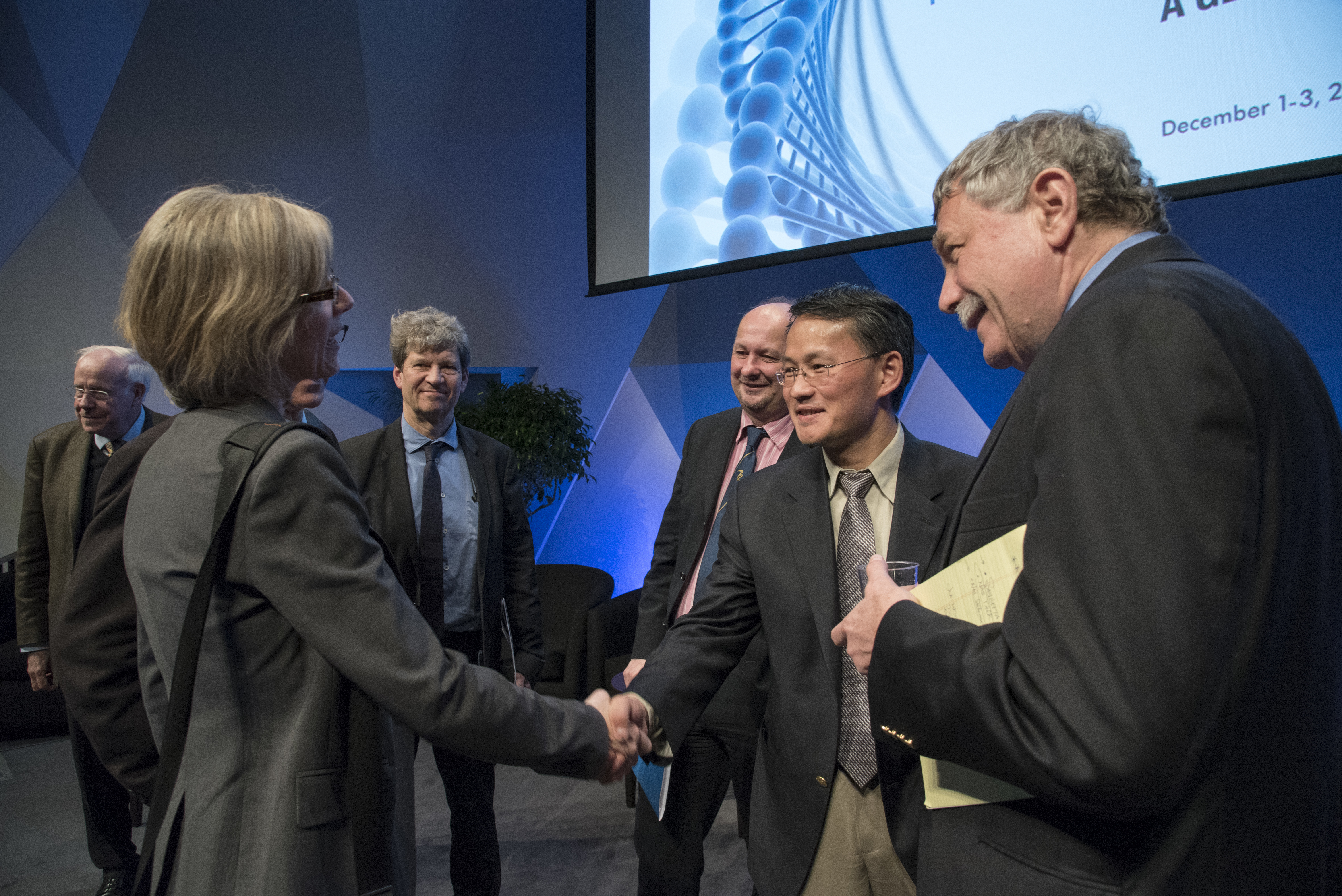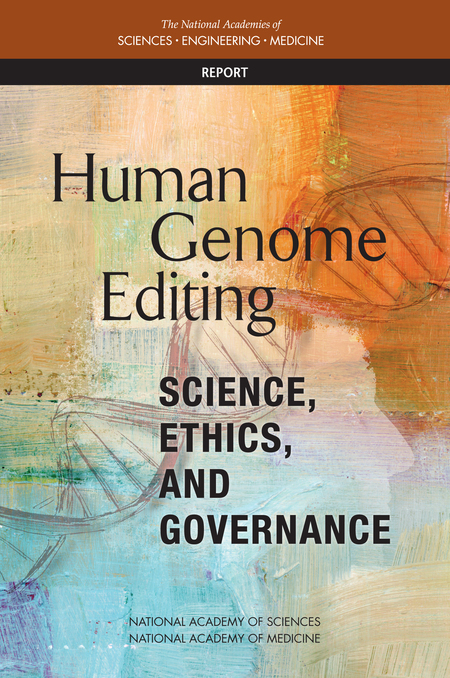 Back to Case Studies
Back to Case Studies
Location
Washington, D.C.

Genome editing technologies have advanced rapidly over the past decade. On one hand, these tools raise the potential to significantly further basic science research and treat harmful disease, but on the other, they also raise ethical dilemmas, particularly with regard to the question of making changes to the human genome that will be passed onto future generations.
Powerful new genome editing technologies, such as CRISPR-Cas9, hold great promise for advancing science and treating disease.
The objective of the Human Genome Editing Initiative is to convene global stakeholders to deliberate on issues associated with the clinical use of human genome editing.
Over the past decade, genome editing technologies such as CRISPR-Cas9 have made genome editing more efficient, precise, and flexible than ever before. These new technologies have spurred an explosion of interest from around the globe in the possible ways in which genome editing can improve human health. At the same time, editing the genome also poses ethical concerns, particularly because of their potential to be used to make genetic changes that are passed onto future generations—germline editing.
Genome editing became the subject of significant global controversy in 2018 when a scientist from China announced that he had used genome editing to make genetic alterations in early embryos which were subsequently implanted. A resultant pregnancy reportedly resulted in the birth of twin girls. The scientist was condemned by the global scientific community for violating ethical and scientific norms, but his actions reinforced the need for a global consensus on a framework for considering technical, scientific, medical, regulatory, and ethical requirements for germline genome editing, should society conclude such applications are acceptable.
The Human Genome Editing Initiative has had two components: (1) periodic convenings of experts from around the world to discuss the scientific, ethical, and governance issues associated with human genome editing research; (2) consensus studies on: a) the scientific underpinnings of human genome-editing technologies and the clinical, ethical, legal, and social implications of their use and; b) an appropriate framework for scientists, clinicians, and regulatory authorities to consider when assessing potential clinical applications of human germline genome editing. The Human Genome Editing Initiative’s inaugural activity was the First International Summit on Human Genome Editing, held in 2015 in Washington, DC and co-hosted by the UK’s Royal Society and Chinese Academy of Sciences. The summit convened experts globally to discuss the scientific, ethical, and governance issues of human genome editing, and following the conference, the organizing committee issued a statement that said that it would be irresponsible to proceed with any clinical use of germline genome editing “unless and until (i) the relevant safety and efficacy issues have been resolved, based on appropriate understanding and balancing of risks, potential benefits, and alternatives, and (ii) there is broad societal consensus about the appropriateness of the proposed application.”
 Jennifer A. Doudna (University of California, Berkeley), Robin Lovell-Badge (The Francis Crick Institute), Adrian Thrasher (University College London Institute of Child Health), Duanqing Pei (Guangzhou Institutes of Biomedicine and Health, Chinese Academy of Sciences), and Eric S. Lander (Broad Institute of Harvard and MIT), Members of the Organizing Committee for the First International Summit on Human Genome Editing.
Jennifer A. Doudna (University of California, Berkeley), Robin Lovell-Badge (The Francis Crick Institute), Adrian Thrasher (University College London Institute of Child Health), Duanqing Pei (Guangzhou Institutes of Biomedicine and Health, Chinese Academy of Sciences), and Eric S. Lander (Broad Institute of Harvard and MIT), Members of the Organizing Committee for the First International Summit on Human Genome Editing.
With the conclusion of the First International Summit on Human Genome Editing, the National Academies began a comprehensive study of the scientific underpinnings of human genome editing technologies – including heritable human genome editing – and the clinical, ethical, legal, and social implications of their use. The study considered important questions about the human application of genome editing including: balancing potential benefits with unintended risks, governing the use of genome editing, incorporating societal values into clinical applications and policy decisions, and respecting the inevitable differences across nations and cultures that will shape how and whether to use these new technologies, and proposed criteria for heritable genome editing.
 National Academies of Sciences, Engineering, and Medicine. 2017. Human Genome Editing: Science, Ethics, and Governance. Washington, DC: The National Academies Press.
National Academies of Sciences, Engineering, and Medicine. 2017. Human Genome Editing: Science, Ethics, and Governance. Washington, DC: The National Academies Press.
A second summit was convened by the Academy of Sciences of Hong Kong with the National Academy of Sciences, the National Academy of Medicine, and the UK Royal Society in December 2018 in Hong Kong. At the conclusion of the summit, the organizing committee issued a statement that reaffirmed that “the scientific understanding and technical requirements for clinical practice remain too uncertain and the risks too great to permit clinical trials of germline editing.”
Most recently, the National Academy of Sciences, the National Academy of Medicine, and the UK Royal Society convened an International Commission on the Clinical Use of Human Germline Genome Editing to develop a framework for scientists, clinicians, and regulatory authorities to consider when assessing potential clinical applications of genome editing, should society conclude such applications are acceptable.
While the organizing committees for the initiative’s two summits and the committee authoring the 2017 consensus report concluded that the scientific understanding and technical requirements for clinical application of human germline editing remain too uncertain and the risks too great to permit clinical trials, recent developments suggest that it may be time to define a rigorous, responsible translational pathway toward such trials, if deemed acceptable.
The Human Genome Editing Initiative will continue to convene activities that engage researchers, clinicians, policymakers, and societies around the world in discussions of human genome editing to help inform decision-making about this research and its application. A third summit will be held in the UK in 2021.